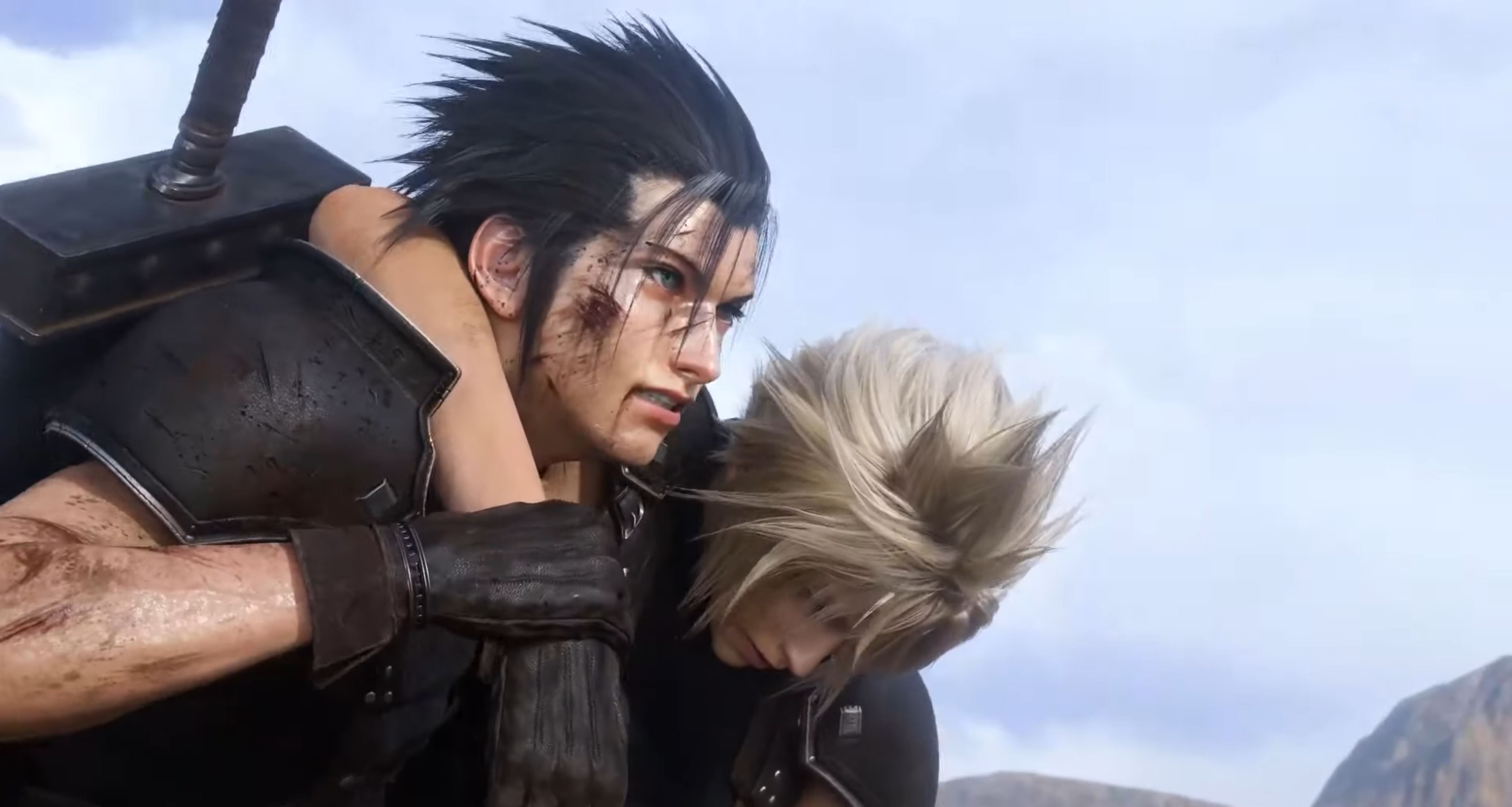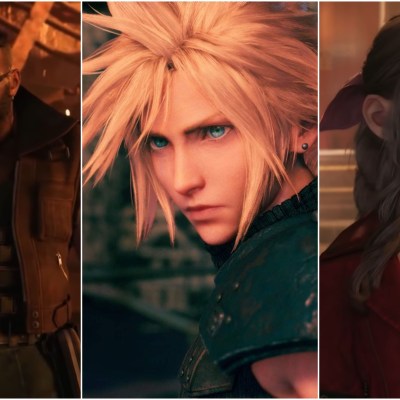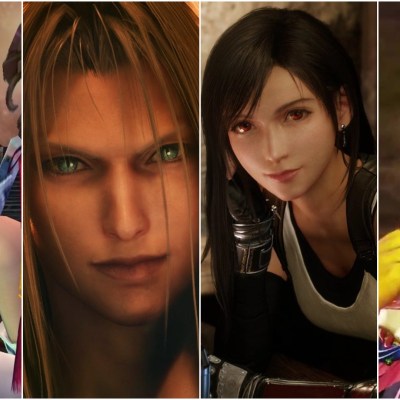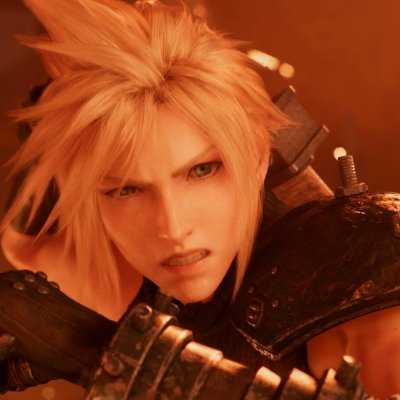While the recent Final Fantasy 7 anniversary showcase was filled with incredible announcements, none was more exciting or welcome than the reveal of Final Fantasy 7 Rebirth: the next chapter in the Final Fantasy 7 Remake trilogy.
While there are so many things we want to know about that game, few mysteries are more pressing or fascinating than the meaning of the Rebirth name. After all, creative director Tetsuya Nomura has already stated that there is some kind of significance to the game’s name that he can’t wait to share.
So while it might be quite some time before we all understand the full, official meaning of the Rebirth name (the game isn’t scheduled to be released until “next winter”), that doesn’t mean that we can’t spend a little time speculating about what Rebirth means and why that title is so potentially significant.
Here are a few thoughts I have about what Rebirth might be referring to.
This particular theory doesn’t necessarily contradict other theories. In fact, this theory might be closer to an obvious fact at this point.
Nevertheless, it must be said that there is almost certainly some kind of meta element to the Rebirth name. In fact, director Tetsuya Nomura seemingly offered a big hint as to what the meta meaning of that title might be.
To be fair, I suspect that Nomura is exaggerating slightly when he suggests someone could jump into Rebirth without playing Remake. At the very least, that probably won’t be the ideal way to play Rebirth.
Although, maybe it really isn’t that crazy of a suggestion. What if Rebirth is named Rebirth because it’s going to be closer to a reboot of the Final Fantasy 7 story that can operate within its own context? Granted, I know that Remake already made more changes to FF7 than some of the original game’s more…vocal fans would have liked, but it still featured a number of scenes and ideas pulled directly from the original adventure.
What if Rebirth is just going in a completely different direction from the start? Actually, “start” might be the key word here. Nomura specifically mentioned the “scenes that they witness after leaving Midgar” as a kind of jumping-off point for new players. We’ll talk a little more about the specifics of what that might mean, but it’s enough to know that there are major plot points that will seemingly be addressed in Rebirth that could allow new players to experience Remake/Rebirth‘s timeline shenanigans in a slightly more logical way. Well, at least as “logical” as this thing could be at this point.
Suffice to say, it really is looking like Remake was more of a teaser for those aforementioned timeline shenanigans that Rebirth will likely heavily feature. While Rebirth will undoubtedly share some similarities with the events of the original Final Fantasy 7‘s story, it’s shaping up to be something much closer to its own thing.
Read more
Rebirth Could Refer to Zack Fair’s Return
On the one hand, I think this is the most logical explanation for the Rebirth name. On the other hand, the most logical explanations for Square Enix’s naming decisions are rarely the most accurate.
In any case, most FF fans assume that Rebirth refers to the fact that Final Fantasy 7 Remake seems to have somehow “resurrected” Zack Fair: a character whose death in the original Final Fantasy 7 ended up impacting most of the events in that game that followed in some way.
It’s not exactly a stretch to say that Zack’s apparent resurrection is enough to ensure that Rebirth cannot and will not copy the events of Final Fantasy 7‘s post-Midgar chapters. Everyone pretty much assumed as much, but it’s important to at least use that as a starting point for future theories. The idea of Zack’s “rebirth” is exactly the kind of event that could shape the next Final Fantasy 7 game in a significant enough way to justify naming the game after that event.
The bigger question is “What is going on with Zack, and how will he impact Rebirth?” While Final Fantasy Remake seemingly resurrected Zack, it still left us with a lot of questions regarding the state of his presumed existence. Will Zack be joining Remake‘s characters in the timeline we saw play out in that game? Is he part of a separate timeline that some characters seem to be aware of? If the latter is true, then could those two (or more) timelines somehow interact with each other in some way? If not, then could we see all timelines play out in their own way?
One thing that I’m reasonably sure of is that Rebirth will feature some of the flashback events in the original Final Fantasy 7 that revealed how Zack initially died and how that death changed Cloud, Tifa, and even Sephiroth’s life. Now, it’s clear enough that those events won’t play out exactly as they did the first time around (at least in some timelines), but that’s not the point. The point is that if Rebirth begins with a retelling of those events and how they may have impacted multiple timelines, then that could be why Nomura refers to Rebirth as something that even new fans can jump into. After all, if one of the earlier events of the game helps clear up some of this timeline confusion for everyone, then new players may have a chance to make sense of the new shape of things.
Of course, there are other ways that Zack’s return could add some additional meaning to the Rebirth name…
Rebirth Could Hint at a Much Different Version of Cloud Strife
While Zack’s return would change a lot of things about the original FF7‘s story, there is arguably no single character who would be more significantly impacted by that return than Cloud Strife.
To say that Zack’s death altered the trajectory of Cloud’s life would be a gross understatement. The event obviously impacted him on an emotional level, but it quite literally changed who he was. Zack’s death led to Cloud essentially developing a new persona that partially represented himself and partially represented Zack’s personality and memories. There are a lot of theories about how that happened, but it seems safe to say that it was the result of trauma and psychological tampering by outside forces. The point is, that the Cloud we see at the beginning of Final Fantasy 7 and Final Fantasy Remake is a version of the character who was very much shaped by those events.
If you’re willing to go along with the idea that Zack surviving would have fundamentally altered the Cloud we grew to know, the question becomes “What would Cloud have been like if Zack had survived?” Another way to think of it is “If there is a Cloud that still exists in a world where Zack is alive, then what is that Cloud’s life and future like?”
Put it all together, and you’re looking at the possibility that Cloud could be the one undergoing a kind of “rebirth.” What kind of rebirth? Well, it’s possible that Zack will join Cloud’s party in some way and stir up enough drama to change Cloud’s current trajectory (perhaps in a way that benefits Sephiroth). It’s possible that the version of Cloud that exists in a timeline where Zack is alive will have his own adventures that play out like a kind of “What if?” scenario. If you really want to break your brain, you could make an argument for the possibility that Remake‘s Cloud actually can’t exist in a scenario where Zack also exists in the same timeline.
There are a lot of potential variables to consider. What they all come back to is the idea that Cloud’s trajectory has been changed in a potentially significant way. Rebirth may tell the story of a reborn version of that character (again, at least from the perspective of those who know the story of his original FF7 adventures).
Rebirth Might Suggest That Aerith’s Fate Will Be Changed
I’ll go ahead and call this theory a bit of a stretch, but it’s too potentially important to not at least mention.
I don’t think I’m going to shock many people by saying that Aerith dies in the original version of Final Fantasy 7. It’s one of the most famous twists/moments in video game history, and it’s arguably gaming’s pop culture equivalent of the “Darth Vader is Luke’s father” or “Bruce Willis was dead all along.” Many words have already been written about that moment, so I recommend you read a few more of them if you need the full breakdown of why Aerith’s death is so significant.
Now, I know that Final Fantasy 7 Remake drew a lot of heat for the many ways it altered the original Final Fantasy 7‘s story. As we discussed above, it seems like Rebirth is going to make even more changes to that story. Still, there’s no way that they would alter a moment as big as Aerith’s death, right?
Well…maybe. In the Final Fantasy 7 Remake Ultimania book, Final Fantasy 7 Remake producer Yoshinori Kitase said, “From here on out, We’re not drastically changing the story and making it into something completely different than the original. Even though it’s a Remake, please assume the story of FF7 will continue as FF7 always has.” Scenario writer Kazushige Nojima also said, “For me, I create scenarios that follow the general flow of the original story but with the assumption that the way things are presented or how events occur might be slightly different.”
It’s honestly hard to tell just how willing the FF7 team really is to change major chunks of the original story. Maybe Kitas means that future FF7-related adventures will draw from the original FF7 plot and will not be significantly altered by the events of the remake trilogy. Maybe there’s some confusion, misdirection, or simple disagreements at play behind the scenes. We also can’t rule out the possibility of a multiverse or multiple timelines that allow us to see Aerith survive.
Maybe Rebirth is as much of a nod to our knowledge and expectations of Final Fantasy 7 as the title Remake was. In that case, it’s possible that any scenario in which Aerith is alive longer than she is supposed to be could be seen as a “rebirth” by those that expect her to die (meaning us, the players).
At the end of the day, I would think the better course of action is for the FF7 team to find some way to make Aerith’s death play out slightly differently so that it catches people by surprise. Having said that, I’m not confident the team won’t find some way to at least show us another universe where Aerith doesn’t die (at least not in the way we’re expecting) and is “reborn” in our eyes.
Read more
Rebirth Seems to Hint At Sephiroth’s Endgame
Given that the Final Fantasy Rebirth trailer includes the question “What is Sephiroth’s Endgame?” it’s hard to talk about the Rebirth name without suggesting it could somehow be related to Sephiroth’s plans.
On a simple level, it really does seem like Sephiroth wants to disrupt the timeline we saw play out in Final Fantasy 7 so that he can accomplish something that wouldn’t have been possible in that scenario. Yes, that’s a very basic read, but it gets to the point that Sephiroth needs some things to go differently this time around for his plan to work.
So what was Sephiroth’s plan in the original Final Fantasy 7? As with most things related to FF7‘s plot, that is a surprisingly complicated question that is subject to some interpretation and debate. Basically, though, Sephiroth was looking to summon a meteor that would crash into Earth (Gaia). It also seems that he wanted to use the circumstances of that impact to absorb an incredible amount of power that would basically turn him into a god. What he intended to do afterward is a little more ambiguous, but he did say that his plan would allow him to be “reborn.” He also talks about the idea of reincarnation in Final Fantasy 7 Remake.
So, along with every other possibility, there’s a pretty good chance that Rebirth is a reference to Sephiroth’s plan in some way. After all, the Rebirth trailer teases Sephiroth’s endgame and prominently features scenes of a meteor crashing into Gaia. While the Rebirth name could apply to other parts of Sephiroth’s plan (especially if they involve preventing Cloud from saving the day by messing with his mental state), it really does seem like it is a nod to Sephiroth’s grand scheme in some way. The language is just too similar to things Sephiroth has already said.
Do you have any theories about Final Fantasy 7 Rebirth‘s mysterious name? Feel free to share them in the comments below.




